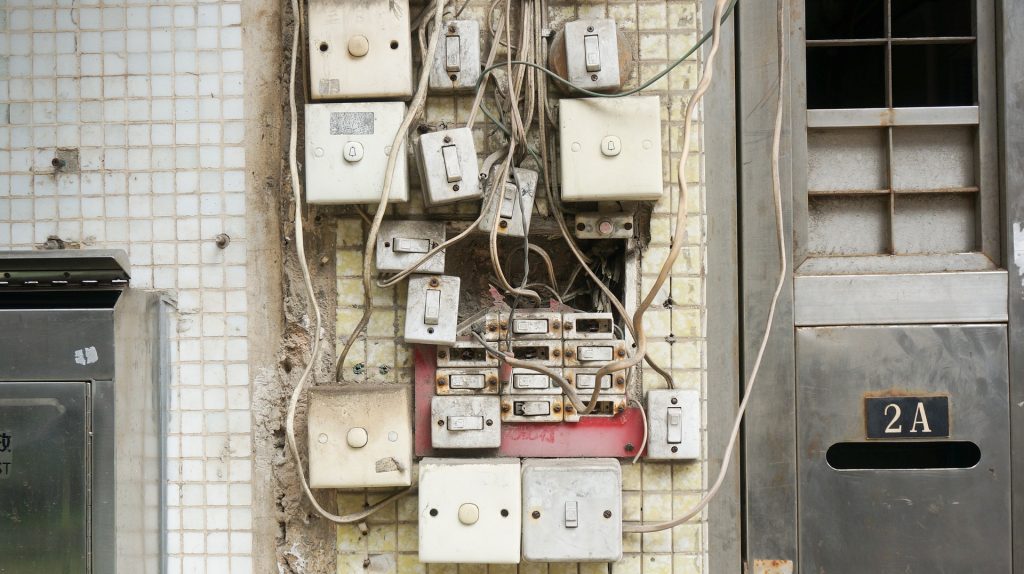Electricity is one of those essential services we tend to take for granted. Most of us expect to simply flick the switch and all will be well. But around the home there are a number of potential hazards that can impact electricity supply at best, or pose a serious, life-threatening danger at worst.
Here are the top 10 electrical hazards every home owner should be aware of and seek to prevent.
Ageing infrastructure and faulty wiring
Modern electrical wiring is designed to meet stringent standards, but not all properties were built after these codes came into effect. Old or damaged wiring increases the risk of short circuiting, fire and electric shock and can be affected in areas that are hard to see.
Reasons for failure include corrosion, fraying, cracking, breakage, and overheating. Meanwhile age and usage can also impact your appliances.
Have your wiring and appliances checked by a qualified electrician and replace any infrastructure that poses a risk. Never use an appliance where the cord or plug is damaged.
Improper installation
Although it’s against the law for anyone but a licensed professional to complete electrical work, you can never be sure who’s touched wiring on a pre-existing home.
Have your property thoroughly checked by a licensed electrician when you commit to buy, just to ensure electrical work is up to par.
Pests
Even small pests can create all sorts of hazards when it comes to electrical wiring. Ants are a potential problem while rodents like to sharpen their teeth on tasty, warm wiring insulation. If you see evidence of pests, call in a pest controller and follow up with a quick electrical inspection.
Water
Water and electricity are a fatal combination. That means if you’ve experienced water inundation through flooding, roof leaks or other incidents, your electrical supply will need to be checked.
All electrical outlets should be installed at a distance from wet areas and be mindful of how you use your power points and appliances in areas like the kitchen and bathroom.
Never pour water on an electrical fire.
Wet hands
The same principal extends to wet hands. Never touch power outlets or appliances with wet hands or while floors are wet.
Extension cords
Over time extension cords can age and deteriorate. Always check cords prior to usage for kinks, splits, and damage, and if there are signs of wear, have them replaced or professionally repaired, tagged and tested.
When using extension cords make sure no furniture or items are placed on top of cords and they are properly unfurled.
Overloaded sockets
Overloaded power boards, double adaptors and power outlets have the potential to overheat and cause a fire.
Make sure you do not overload an outlet and all power boards have breaker switches. It’s also prudent to have power boards tagged and tested on a regular basis and, if you have an area in the home where you need more sockets, have them installed by a licensed electrician.
Covered cords
Covered cords and powerboards also have the potential to overheat, so keep them separate and clear of other items. Also ensure appliances like televisions and computers have sufficient space around them for ventilation.
Young children
By nature, young children are inquisitive and power outlets can attract their interest. Keep children away from appliances, particularly in wet areas, and use child-proof outlet covers where sockets are within their reach.
Lightbulbs
They seem fairly innocuous and we change them on a regular basis, but lightbulbs can also cause an electrical hazard. When changing a lightbulb ensure the power is off, and keep lamps or lightbulbs away from flammable materials like curtains, upholstery and furniture.
About Radi
Radi Electrical specialises in all areas of domestic, commercial, industrial and strata electrical services. To have your electricity supply professionally checked, additional outlets installed, or for further information, contact our professional team of electricians here.



